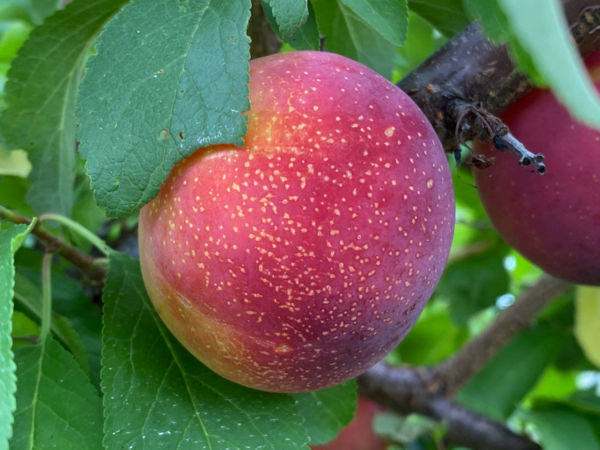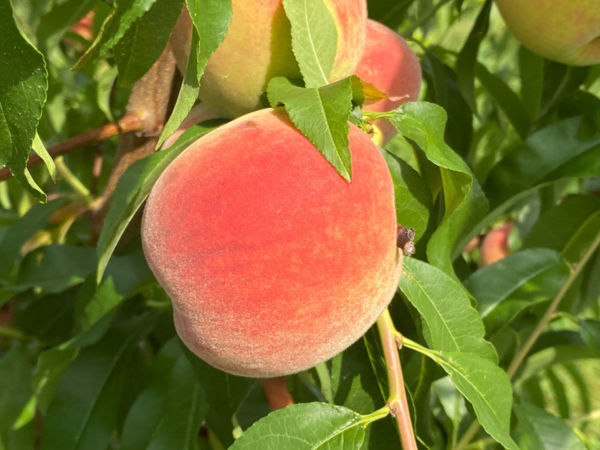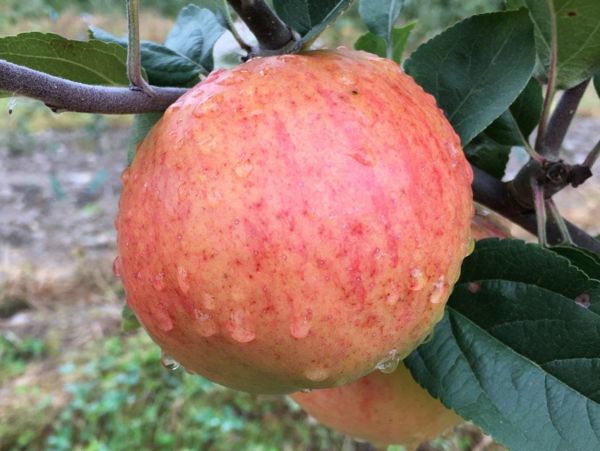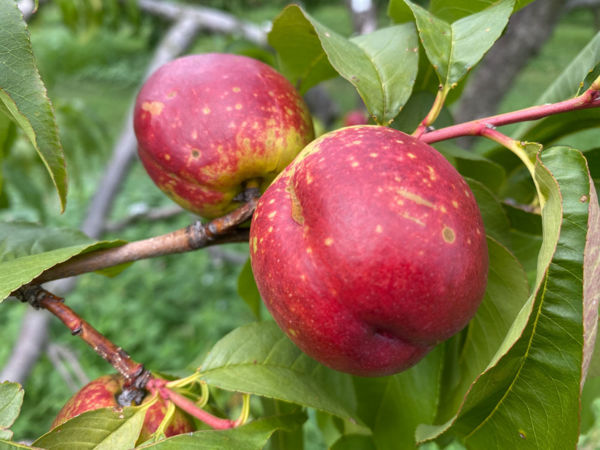An attractive, highly disease-resistant apple, ideal for organic growers.
Lavina Plum on Krymsk 1 (Spring 2025)
You are viewing a tree that will ship in Spring 2025. You can also find trees for Spring 2024.
A very cold-hardy plum hybrid from Lithuania.
This exotic treat grows on a very vigorous tree that produces regular and abundant crops. It will need diligent pruning and thinning. Lavina grows well almost anywhere; it is shade tolerant and very cold hardy, thriving in Geneva, NY through two devastating winters, and it seems to have a high level of resistance to common plum diseases. Lavina is not self-fertile and it will need to be partnered with another cherry plum or an Asian plum. It blooms early and matures mid to late season (late August in upstate NY).
Lavina translates as "Avalanche," and the name makes sense when you see the cascades of golden fruit pouring off the branches. The fruit is a smallish yellow plum with a pretty red blush. It is highly flavored with a good balance of sugar and acid, and the flesh is firm and juicy. It is almost fully freestone. Lavina is a superb, tasty plum, and an especially good choice for anyone dealing with difficult growing conditions.
While Japanese plums gained popularity around the world in the 19th and 20th centuries, these varieties were insufficiently cold hardy for Russia and other Slavic countries. However, in the 1940s, a botanist from Yalta, K.F. Kostina examined some abandoned gardens on the southern coast of Crimea, where she discovered a number of "cherry plums" (aka Prunus cerasifera or myrobalan not to be confused with hybridizations of cherry and plum, such as Nadia) that were cold hardy but very small. These were crossbred with Japanese plum varieties to produce hybrids that are early maturing, climate adaptable, and highly flavored. One of the most successful products of the breeding program was Skoroplodnaya, which is a parent of Lavina and a number of other hybrid cherry plums.
The Fruit
Fruit Type
Category: Plum
Subcategory:
Hybrid, Cold-Hardy
Fruit Uses & Storage
Uses: fresh eating, jam, baking, canning, freezing, jelly
Storage duration: less than one month (approximate, depending on storage conditions)
Fruit Appearance
Skin color: yellow
Flesh color: yellow
Fruit Origins
Parentage: Skoroplodnaya x unknown
Origin: Lithuania
Introduced in:
Introduced by:
The Environment
Calendar & Geography
USDA zones: 4 - 8
Chill hours: Not yet determined
Ripening date: Aug 22 (approximate, in New York State) 10 days before Stanley
Tree Height & Spacing
glossary
Rootstock: Krymsk 1 Rootstock
Rootstock size class: Semi-Dwarf (40% of Standard)
Tree spacing: See details
Good for wildlife planting? N
Diseases & Pests
glossary
Black Knot: Resistant
Cherry Leaf Spot : Resistant
Pollination
Pollination Factors
glossary
Bloom group:
Is it self-fertile? N
Is it fertile? Y
Ploidy: Diploid
Rootstock size class:
Semi-Dwarf (40% of Standard)
Pollination Partners
This table shows the first few results from a full search for pollenizers of Lavina Plum on Krymsk 1. Please see our Pollenizer Search to run other queries and read how the application uses various factors. Also read more about fruit tree pollination.
See all pollination matches for Lavina Plum on Krymsk 1
Featured Products
A few things we're loving right now...
A full-flavored, freestone white peach.
A traditional semisharp cider apple from Spain.
A widely-grown, large, yellow-fleshed nectarine.


















